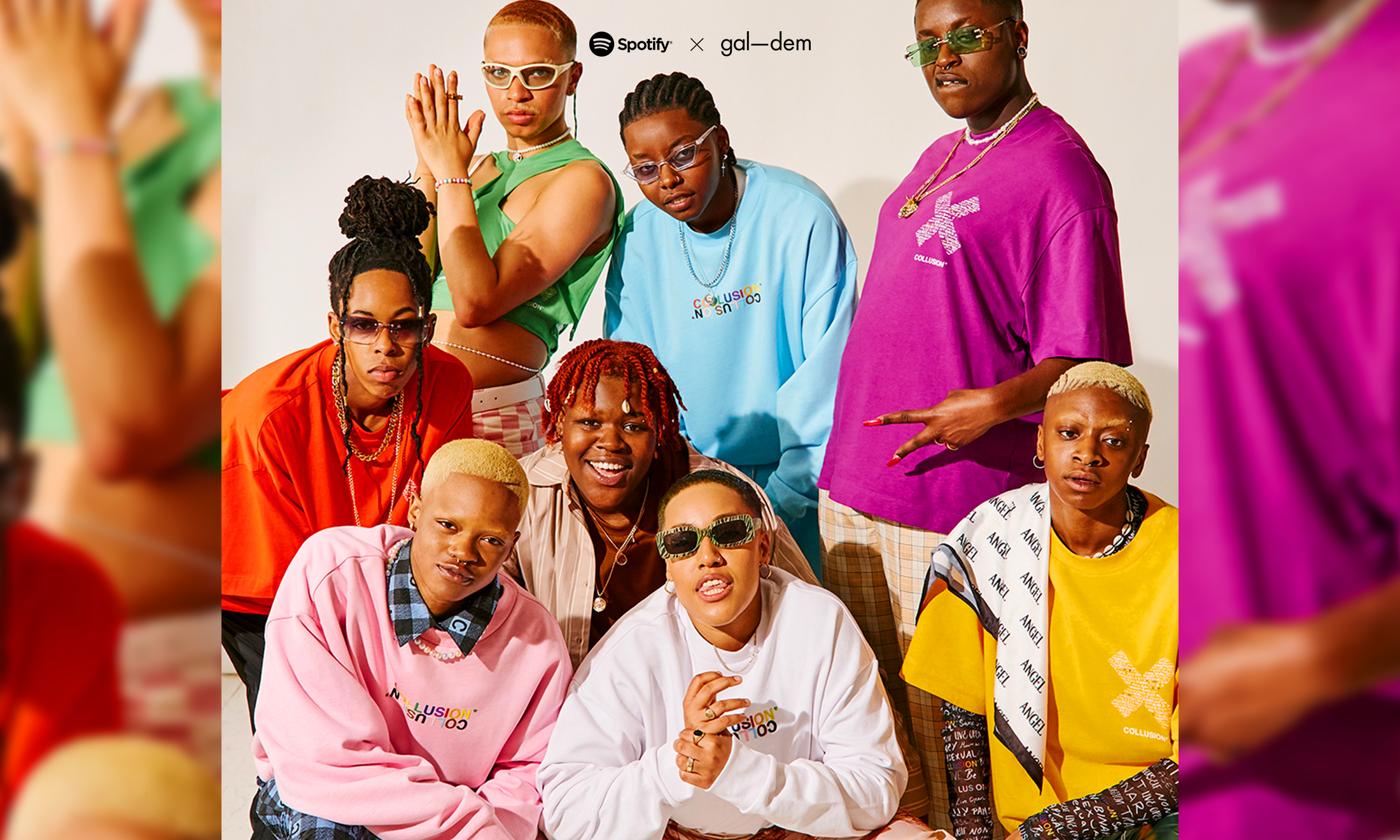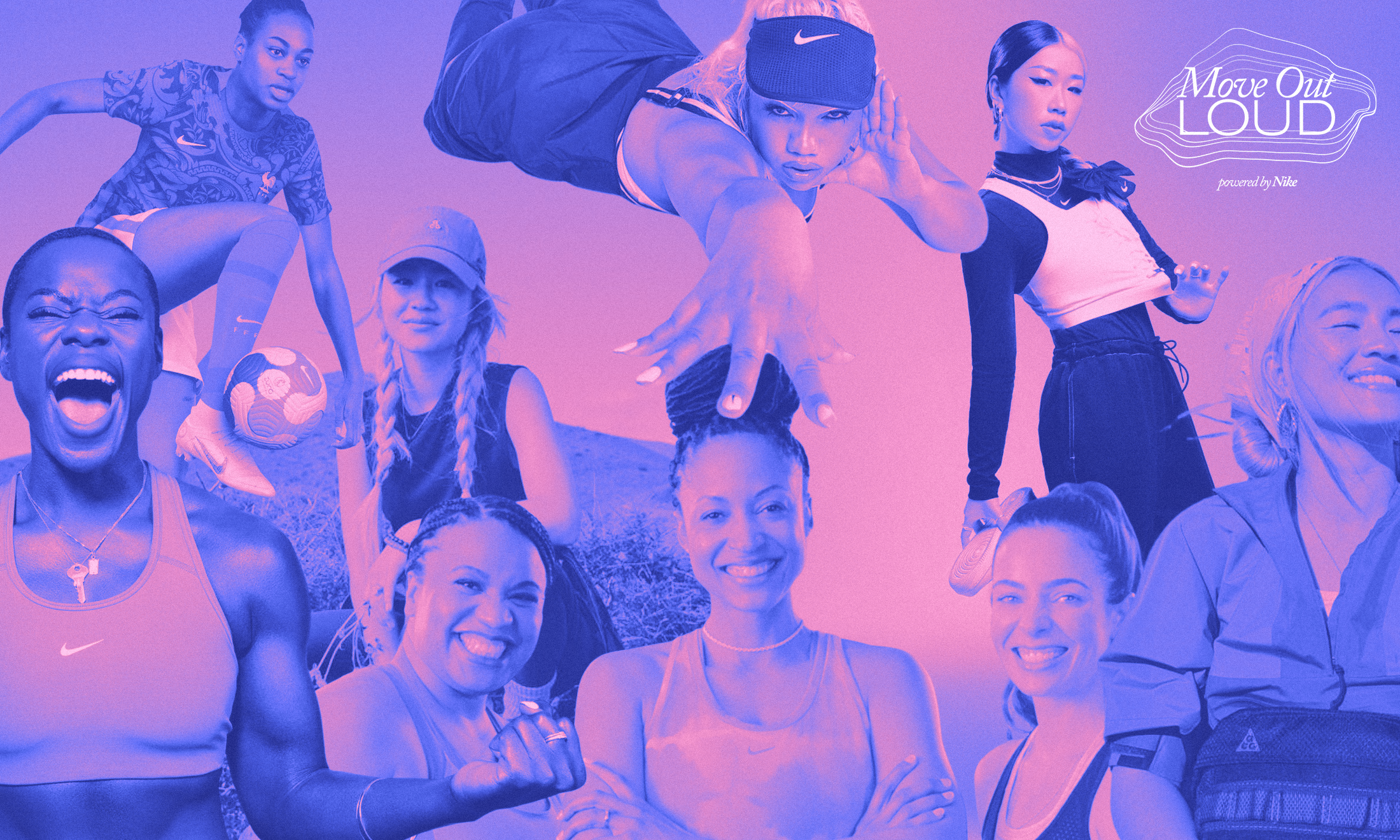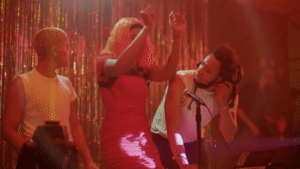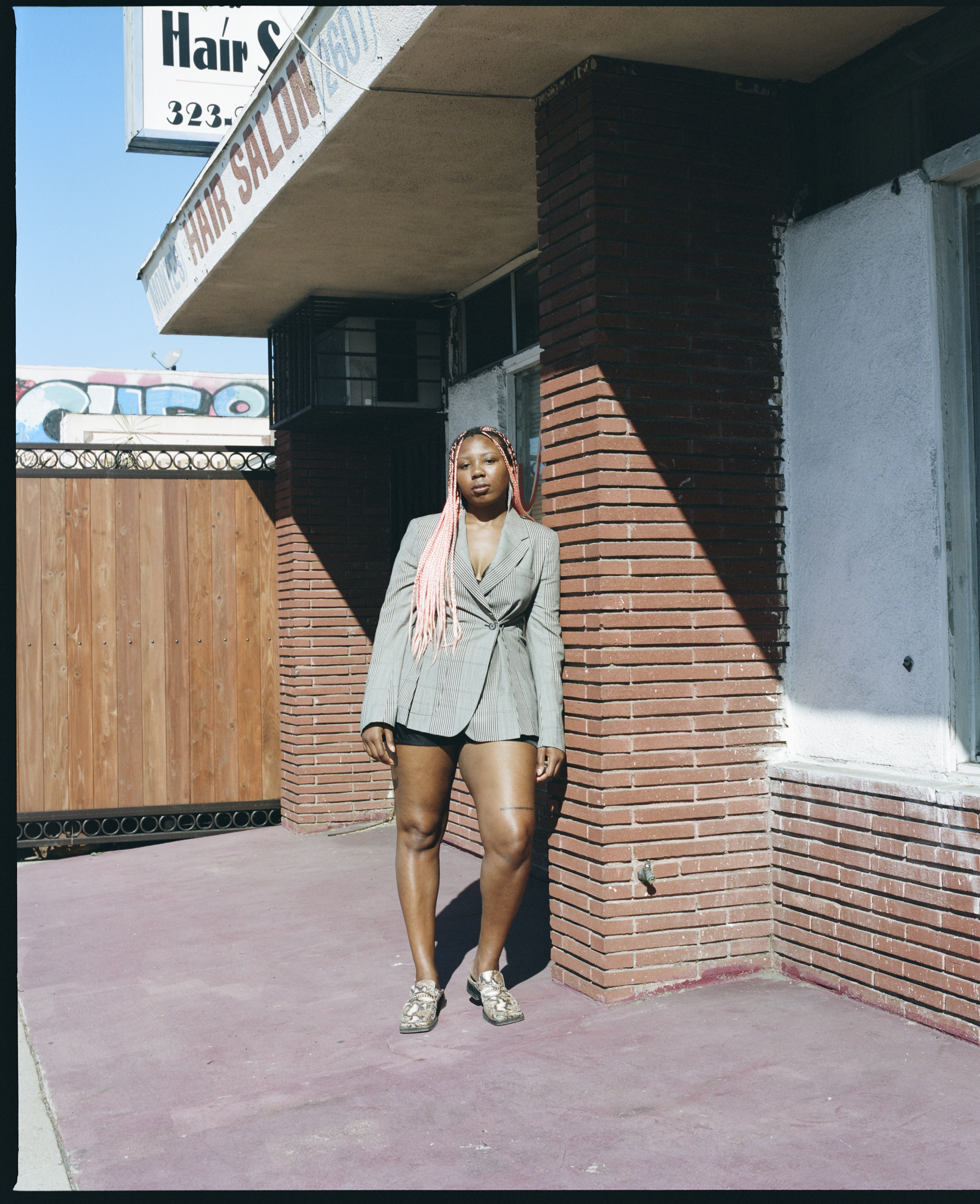When Zozibini Tunzi harnessed the power of Black Sisterhood for Mandela Day
In an episode of The Mandela Project, an original series from YouTube’s Black Voices Fund, the former Miss Universe celebrates a young graduate and shines a light on the impact of education.
Evie Muir
08 Aug 2022
In partnership with YouTube.
Strong and independent. Two adjectives that are routinely used to describe us, Black women. As we begin to interrogate their meaning, we recognise that these two words, once held as positive and prideful, are also loaded with responsibility and expectation – to work doubly hard, to be resilient, to not show weakness, to be grateful. The implication of this is that often as Black women we must fight to be seen and heard, in our schools, families, communities and workplaces.
This fight is exhausting. Our strength and independence can’t override the impacts of societal oppression and it doesn’t permit us time to rest, be proud of our achievements, or care for and love ourselves. How can we, when our sense of self, worth and belonging is so closely tied to Eurocentric beauty standards, Western capitalist models of production and the white, patriarchal gaze?
This Mandela Day, however, we are reminded that our best is enough. Mandela Day, declared in 2009 by the United Nations General Assembly as an International Day, falls annually on Madiba’s birthday – 18 July. Its 2022 theme: “do what you can, with what you have, wherever you are,” reminds us that community care looks like small acts of kindness that start at home.
“Mandela Day prompts us to look around and see what changes we can make in our communities and tells us that, no matter our capacity or resources, we have the power to make a difference”
This year, YouTube’s Black Voices Fund and The Mandela Foundation are celebrating Mandela Day and people who embody its ethos in a brand new original series. Each episode of The Mandela Project follows one of six famous faces as they meet people doing what they can to encourage and empower those around them. In one episode, former Miss Universe Zozibini Tunzi offers us a glimpse into the ways Mandela Day inspires acts of service in her home country, as she supports Ntokozo Ntshingila, a recent graduate, with her self-confidence.
Mandela Day prompts us to look around and see what changes we can make in our communities and tells us that, no matter our capacity or resources, we have the power to make a difference. Encouraging us to “take action, inspire change and make every day a Mandela Day,” the celebration has long since become a reminder of our collective power to incite change. It is a call to action, for all of us around the world to honour Mandela’s legacy as a freedom fighter against the white supremacy of South African apartheid.
“I like to think that I’m blooming into a tree, that’s going to bear fruit and everyone around me is going to benefit from that”
Ntokozo Ntshingila
While much change has been achieved since the official ending of apartheid in 1994, systemic oppressions and long-lasting traumas continue to inject pain and suffering into communities. This can be seen clearly in, for example, the education system. Segregation was once normalised in schools and university education was denied to Black South Africans. This is no longer the case, but its legacy is still felt, as only 4.3% of Black South Africans graduate to higher education.
Ntokozo is a part of this defiant statistic. The 24-year-old, who graduated with a degree in Palaeoanthropology, was one of a few young people to make it to Varsity (higher education) from her local neighbourhood in Soweto – a place Mandela himself once called home. Mandela’s grandson Ndaba Mandela, who features in The Mandela Project, shares that his grandfather once called education “the most powerful weapon you can use to change the world.”
Despite not having access to funding and resources such as laptops, textbooks, and transport, Ntokozo shares how having an education not only empowers herself, but also her community. “I’ve always looked at it in a way, like I am a seed. And me going to Varsity is me planting the seed,” she says, adding: “and every now and then when I speak to friends, family, or anyone from my community, they sort of like water into the seed. I like to think that I’m blooming into a tree, that’s going to bear fruit and everyone around me is going to benefit from that.” With such a prestigious achievement under her belt, it would be easy to assume that Ntokozo would feel strong and independent. But this is not the case.
“as Black women, we not only deserve to have access to equal education, but also to self-worth, safety, community, and pride”
In the The Mandela Project, we see how Mandela’s story and legacy continues to be interwoven with the personal narratives of South Africans today. We are invited to join Ntokozo as she meets Zozibini, who asks us to imagine what confidence for Black women would feel like if we were permitted to have ownership of our power, our beauty, and our intellect – not just our resilience and suffering.
Zozibini, who comes from South Africa’s Eastern Cape, says that she is also “a beneficiary of Mandela’s fight for education rights” and empathises with Ntokozo’s experience. “We’re living in a world that’s designed for me to never have been in that space in the first place. That’s why I resonate so much with Ntokozo”, she reflects in The Mandela Project. Through the power of sisterhood, this Mandela Day, Zozibini inspires us to step up and show up, and gifts Ntokozo – and us all – with a reminder that, as Black women, we not only deserve to have access to equal education, but also to self-worth, safety, community, and pride.
This Mandela Day, YouTube’s Black Voices Fund is honouring the late South African president and anti-apartheid activist with an original series celebrating Black creators, music and culture. The Mandela Project follows six famous faces as they head out to meet people who are making a difference and keeping Mandela’s legacy alive. In one episode, former Miss Universe Zozibini Tunzi meets up with a young graduate whose experiences show the power of equal education. Watch the full video at the top of this of page or on YouTube, here.









